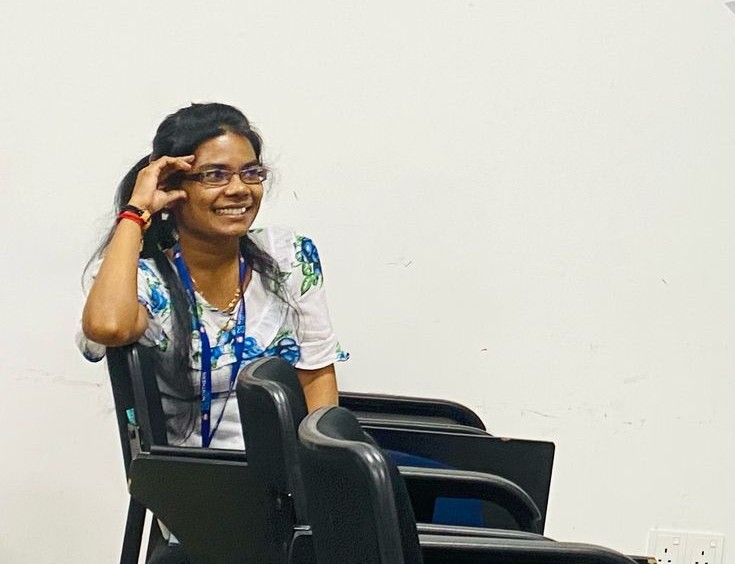Week 9: Interview Manners
Understanding proper interview etiquette and professional conduct during job interviews
Week 9: Interview Manners
Understanding proper interview etiquette and professional conduct during job interviews
1. Lesson Overview
This lesson focused on understanding proper interview etiquette and professional conduct during job interviews. Interview manners play a crucial role in making a positive first impression and demonstrating your suitability for a position.
Students learned about appropriate behavior before, during, and after interviews, as well as common mistakes to avoid.
2. Lesson Objectives
By the end of this lesson, you should be able to:
- Understand the importance of proper interview etiquette in job search success.
- Demonstrate appropriate pre-interview preparation and punctuality.
- Exhibit professional behavior and communication during interviews.
- Follow up appropriately after interviews to maintain positive impressions.
- Avoid common interview mistakes that can damage your chances of employment.
3. The Importance of Interview Manners
Interview manners are critical in making a positive first impression and demonstrating your professionalism. Research shows that employers form opinions about candidates within the first few minutes of an interview.
Good interview manners can compensate for minor skill gaps and set you apart from other candidates.
Professional behavior during interviews reflects how you'll conduct yourself in the workplace.
Poor interview etiquette can eliminate even the most qualified candidates from consideration.
Interview manners demonstrate respect for the interviewer's time and the hiring process.
Your interview manners are a reflection of your character and work ethic.
4. Pre-Interview Preparation
Proper preparation is essential for interview success and demonstrates your genuine interest in the position:
| Preparation Area | Best Practices |
|---|---|
| Research | Study the company, its culture, recent news, and the role requirements. |
| Logistics | Confirm the time, location, and format; plan your route to arrive 10-15 minutes early. |
| Appearance | Dress professionally and appropriately for the company culture. |
| Materials | Bring copies of your CV, references, portfolio, and prepared questions. |
| Practice | Rehearse responses to common questions and prepare specific examples. |
5. During the Interview: Professional Conduct
Your behavior during the interview should demonstrate professionalism and respect:
Greeting: Offer a firm handshake, make eye contact, and smile genuinely when meeting interviewers.
Body Language: Sit up straight, maintain appropriate eye contact, and avoid fidgeting or distracting gestures.
Communication: Speak clearly, listen actively, and respond thoughtfully to questions.
Enthusiasm: Show genuine interest in the role and company through engaged body language and thoughtful questions.
Professionalism: Avoid slang, maintain appropriate formality, and treat all staff members with respect.
6. Common Interview Mistakes to Avoid
Avoiding these common pitfalls can significantly improve your interview success rate:
Late Arrival: Being even a few minutes late can eliminate you from consideration.
Unprofessional Appearance: Inappropriate dress or grooming creates a negative first impression.
Poor Communication: Speaking too quickly, using slang, or failing to answer questions directly.
Negative Attitude: Criticizing previous employers or appearing disinterested in the role.
Lack of Preparation: Not researching the company or failing to prepare thoughtful questions.
7. Post-Interview Follow-Up
Proper follow-up demonstrates continued interest and professionalism:
| Follow-Up Action | Best Practices |
|---|---|
| Thank You Note | Send within 24 hours expressing gratitude and reiterating interest. |
| Timeline Expectations | Respect the stated timeline and avoid excessive follow-up communication. |
| Professional Patience | Wait for the employer to initiate contact about next steps. |
| Graceful Acceptance/Rejection | Respond professionally whether offered the position or not. |
8. Handling Challenging Interview Situations
Professional responses to difficult interview scenarios demonstrate maturity and problem-solving skills:
Tough Questions: Pause before answering, be honest about gaps or weaknesses, and redirect to positive outcomes.
Technical Difficulties: Stay calm during virtual interview issues and politely request to reconnect if needed.
Uncomfortable Moments: Maintain composure when faced with inappropriate questions or challenging scenarios.
Salary Discussions: Express flexibility while demonstrating understanding of your value and market rates.
9. Key Takeaways
Interview manners are crucial for making positive first impressions and demonstrating professionalism.
Proper preparation, punctuality, and professional appearance are essential for interview success.
During interviews, maintain positive body language, communicate clearly, and show genuine interest.
Post-interview follow-up and avoiding common mistakes significantly improve your chances of success.
10. My Learning Reflection
Through this lesson, I learned that interview manners are just as important as technical qualifications in the hiring process. I now understand that first impressions formed during interviews can significantly impact employment opportunities.
I learned about the importance of pre-interview preparation and professional conduct during interviews. This knowledge helped me realize how critical it is to demonstrate respect for the interviewer's time and the hiring process.
I also practiced identifying common interview mistakes and learned how to handle challenging situations professionally — this enhanced my confidence in navigating future interviews.
11. My Personal Statement
Developing my interview skills has taught me the value of preparation and professional presentation. I see proper interview etiquette as a critical skill that will enhance my employment prospects and career advancement.
My goal is to continue refining my interview techniques by:
I am committed to using these interview skills to present myself confidently and secure opportunities that align with my career goals.
Learning Resources
.jpeg)
Interview Workshop
Interactive learning session

Professional Presentation
Appearance and demeanor
.jpeg)
Interview Follow-up
Post-interview etiquette